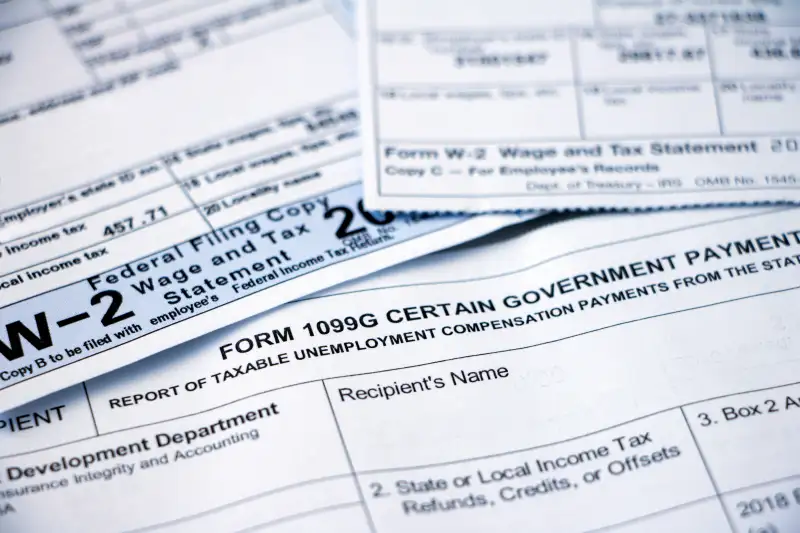The 2020 Tax Season Has Started. Here's How You Can File Free — and When to Expect a Refund Check

Get those W-2 and 1099 tax forms ready. The IRS just announced when the 2020 tax filing season officially begins: The first day you can file was Monday, January 27.
While the IRS will start accepting and processing returns for the 2019 tax year as of January 27, 2020, you have plenty more time to file taxes if you aren't exactly ready just yet. As usual, the last day to file taxes is April 15 this year. Here's more info you need to know about filing taxes in 2020, including how to file taxes for free and when you can expect your tax refund.
When Can You File Taxes?
The 2020 tax filing season officially starts on Monday, January 27. That's the first day that the IRS will begin accepting and processing tax returns for 2019.
Of course, you don't have to file taxes on January 27. That's just the first day of the season you can get your taxes done. But there could be good reason to file your taxes sooner than later: The earlier you file, the quicker you'll get your tax refund check if you're eligible for one. On the other hand, if you're likely to owe money when filing taxes, you might not be in any hurry.
Where Is My Tax Refund Check?
The IRS processes most returns and mails tax refund checks (when a refund is due) within about three weeks, and you'll get your money quicker if you opt for a direct deposit payment instead of asking for a check in the mail.
There are exceptions, of course. If your tax return is particularly complicated, or if you are subject to a dreaded IRS tax audit, it could take much longer to get your tax refund. Or it's possible your "refund" might not come at all, if there are mistakes in your tax return and you wind up owing money. There are also times when there is no clear reason why your tax refund is delayed. This is the federal government we're talking about, after all, and the IRS's budget has been cut drastically in recent years.
Bear in mind that it's not necessarily good to get a big tax refund. A tax refund is just that — a refund of money you've already paid, likely from deductions out of your paycheck — and it's a sign that you've been paying too much in taxes. While it's pretty exciting to get a tax refund check, what it means is that the government has taken more in taxes from you than it should have. It's the equivalent of giving the federal government an interest-free loan over the course of the year.
If you get a big tax refund every year, it might be wise to change your withholdings in your W-4, so that less money is taken by the IRS out of your paycheck every two weeks.
When Are Taxes Due?
In 2020, April 15 falls on a Wednesday. And that's the day taxes are due this year. If you cannot finish your tax returns by then, you can file for an extension by April 15 — and you should also pay any estimated taxes due then as well, to avoid penalties.
In some years, April 15 falls on a weekend or state holiday, and the result is that filers get a couple extra days to do their tax returns. But in 2020, taxes are due on the traditional final day of the tax filing season: April 15.
How to File Taxes for Free
If you make $69,000 or less, you can file federal taxes for free with software available at irs.gov/freefile starting on Monday, January 27, 2020. Some of the IRS "Free File" partners also let you file state taxes for free, though not all services or states offer this option.
Some of the major tax preparation software companies, including TurboTax owner Intuit, have a long history of nudging customers into paying unnecessary fees to file their taxes by concealing the "file free" option, as a ProPublica investigation reported. But the IRS is promising it will be easy this year to find and use the "file free" options with all tax preparation software partners.
If you do wind up having to pay to file your taxes, check out our guide to the best deals from TurboTax, H&R Block, and other online tax prep services.
